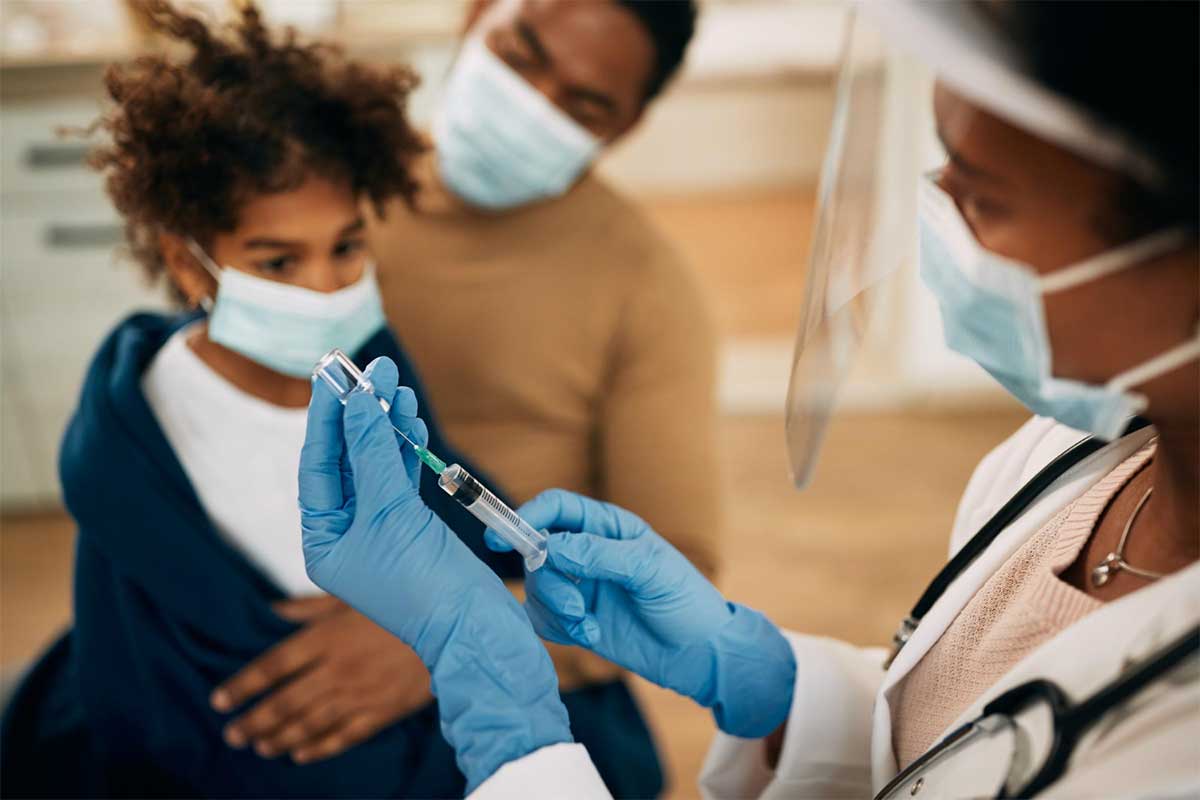As Covid levels creep upward in San Francisco and across California, residents might be wondering whether it’s time for another booster.
Vaccines are available to everyone ages six months and up, but much has changed since nurses started doling out jabs in spring 2021. The two-part Pfizer and Moderna vaccines have now been phased out, replaced by the bivalent, single-shot vaccines that protect against more recent strains of the Covid-19 virus.
“We continue to urge all San Franciscans to stay safe by staying up to date on their vaccinations, having a supply of test kits, keeping masks handy during times of high community spread or when extra precaution is needed,” a Department of Public Health spokesperson said.
Covid levels are rising throughout the state, and as of July 28, San Francisco leads the pack with the highest levels of viral particles detected in its wastewater. Although case loads have seen an increase during each of the last four summers, present levels remain below the rates seen during winter flu season, according to health officials.
The Covid wave is happening now because of three things, according to Dr. Peter Chin-Hong, an infectious disease expert at UC San Francisco.
“First of all, immunity is waning at this point,” Chin-Hong said. “People are also traveling in record numbers. And third, the heat drove a lot of people indoors—even in the Bay Area—which is the equivalent of wintertime, when it’s cold outside and people go indoors.”
Should You Get a Booster?
If you have no outstanding health risks and have received your bivalent booster, you’re probably covered for now. The Centers for Disease Control recommends everyone older than six years to have one updated Pfizer or Moderna bivalent vaccine, which are different from the two-part vaccines that many received in 2021.
“The updated vaccines are called ‘updated’ because they protect against both the original virus that causes Covid-19 and the Omicron variant,” the CDC wrote on its vaccine guidance site, noting that the original monovalent boosters are no longer FDA-approved. Johnson & Johnson vaccines are also no longer available in the U.S.
Additional doses of the bivalent vaccine are currently only recommended for people over 65 and those with weakened immune systems. Older folks must wait at least four months after their first bivalent dose, while the immunocompromised can get another booster after waiting two months.
“For those who are older, I’d say that if you haven’t gotten your last shot—if you got it last fall—and cases are going up, you might want to get one now,” Chinn-Hong said. “And definitely [the same] for the immune-compromised.”
Booster recommendations may continue to shift, however, as new variants emerge. An FDA advisory committee recommended in June that companies develop a new vaccine to protect against the “XBB” Covid variant—called “Arcturus” by some—which was first detected in San Francisco’s wastewater in January, according to WastewaterSCAN.
Chin-Hong recommends that everyone else waits until September 2023, when a newer and updated bivalent vaccine is slated to be released.
So You Got Covid … Again
If you’re one of the unlucky folks who got Covid for the first or second time during this summer’s mini-wave, there are many things you can continue to do to ease your symptoms and protect others.
The usual distancing and isolation rules apply for Covid-positive individuals:
- If you’ve tested positive but have no symptoms, the city recommends isolating for five days.
- If you’ve tested positive for symptoms, the city recommends isolating for at least five days or until your symptoms disappear.
- Mask-wearing is recommended for 11 days for anyone who tests positive.
You can get treatment and medication for Covid—such as Paxlovid—if you have a “high risk of serious illness,” according to San Francisco’s Department of Public Health.
Those who recently had Covid can consider waiting three months after they first started having symptoms or tested positive, according to the CDC. Interested San Franciscans can find a vaccine provider through the Department of Public Health.
“We’re not putting all of our eggs in the vaccine basket anymore,” Chin-Hong said. “It’s important that people know that they have a rescue card, or a lifeboat, which is Paxlovid and early therapies like that. People should be aggressive in enlisting therapy if you get infected, regardless of what your vaccine history is.”
